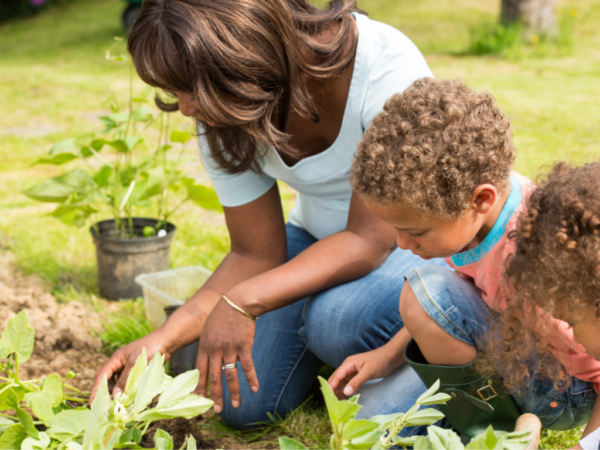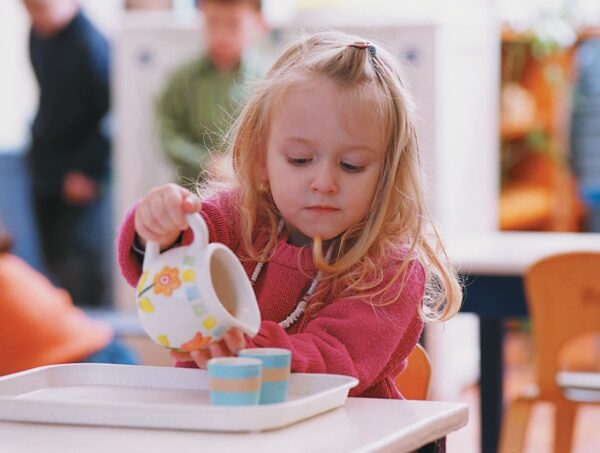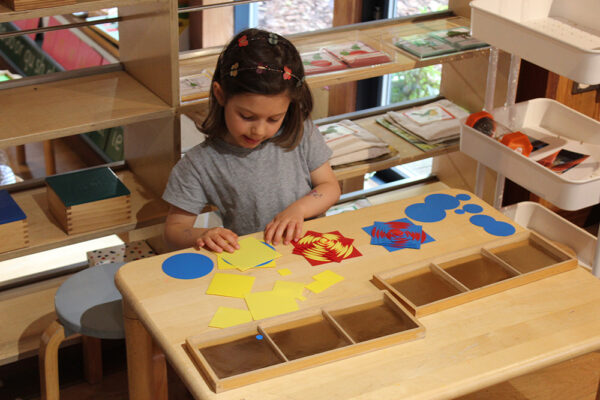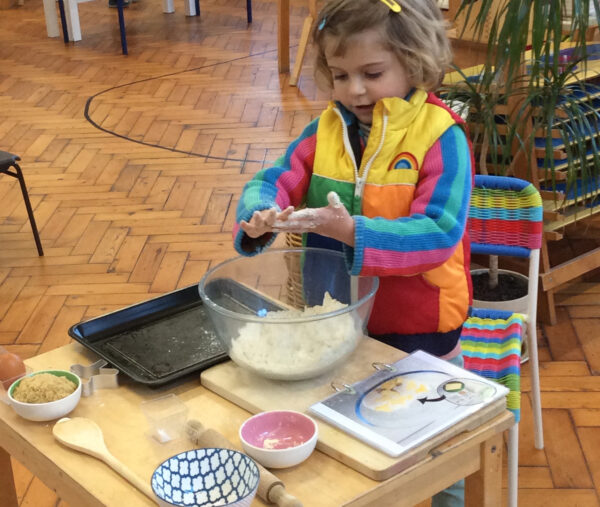
The recent report from the Raising the Nation Play Commission, revealing that outdoor play has declined by 50% in a generation, comes as no surprise to those of us working with Montessori approaches. We wholeheartedly welcome the commission’s emphasis on play and their recognition of what Maria Montessori understood over a century ago: that children’s natural drive to explore, move, and interact with their environment is fundamental to healthy development.
The Montessori Understanding of Play
In Montessori education, we don’t distinguish between ‘play’ and ‘work’ in the way traditional education systems do. For children, purposeful activity – whether we call it play or work – is the basis of children’s development. Montessori observed that children possess an innate drive to engage with their world, and this engagement is how they construct themselves as human beings.
The commission’s findings that children are being “forced indoors on to digital devices” directly contradicts everything we know about child development. Montessori environments are carefully prepared to invite exploration and movement, recognising that children learn through their senses and through physical interaction with their environment. When we remove these opportunities through “no ball games” signs, traffic-dominated streets, and restrictive policies, we deny children their fundamental developmental needs.
Supporting the Commission’s Recommendations
We particularly welcome several of the commission’s key recommendations:
- Protecting playtime in schools: Montessori education has always recognised that movement and unstructured social interaction are not interruptions to learning – they are learning. The practice of withdrawing playtime as punishment fundamentally misunderstands how children develop self-regulation and social skills. In Montessori settings, we observe that children who have opportunities for free movement and choice become more focused and engaged in their academic work.
- Consulting children in development planning: This aligns beautifully with Montessori’s respect for the child as a person. Children have valuable perspectives on their environment and genuine insights into what makes spaces welcoming and functional for them. Their voices should be central to any discussion about the spaces they inhabit.
- Opening school playgrounds to communities: Montessori has always emphasised the importance of community and intergenerational relationships. When children see their learning environments as part of the broader community, it reinforces their sense of belonging and responsibility.
The Digital Challenge
The commission’s examination of the impact of online and digital environments on young people resonates strongly for us. Maria Montessori emphasised the importance of real, concrete experiences in the first plane of development (birth to six years) and continuing through the primary years. Digital devices, designed to capture attention rather than develop it, can interrupt the child’s ability and opportunity to learn from the world and people around them.
This doesn’t mean we’re anti-technology, but rather that we recognise the importance of timing. Early in life children need rich sensory experiences, opportunities to manipulate real objects, and face-to-face social interaction to develop optimally. These cannot be replaced by screen-based alternatives during crucial developmental windows. However, later children can and must learn to utilise technology as an important tool of our time.
A Call to Education Professionals
As education professionals, we have a responsibility to advocate for developmentally appropriate practices. The Commission’s call for a National Play Strategy should be embraced not as an add-on to education, but as recognition of how children actually learn and develop.
In Montessori settings, we regularly observe the transformation that occurs when children are given freedom of movement, choice, and access to appropriately challenging activities in a an environment prepared for development. These same principles can and should inform how we approach community spaces and school policies.
The commission’s report offers us an opportunity to reassert fundamental truths about childhood that have been overshadowed by academic pressure and adult convenience. Children’s need to move, explore, and interact is not a luxury to be accommodated when time permits – it’s the foundation upon which all other learning rests.
We welcome this renewed focus on play and encourage education professionals and parents to see it not as a return to something we’ve lost, but as a step forward toward more authentic, child-centred approaches to development and learning.
Visit Our School
Join A Training Information Session
Request a call from a course advisor
Related














